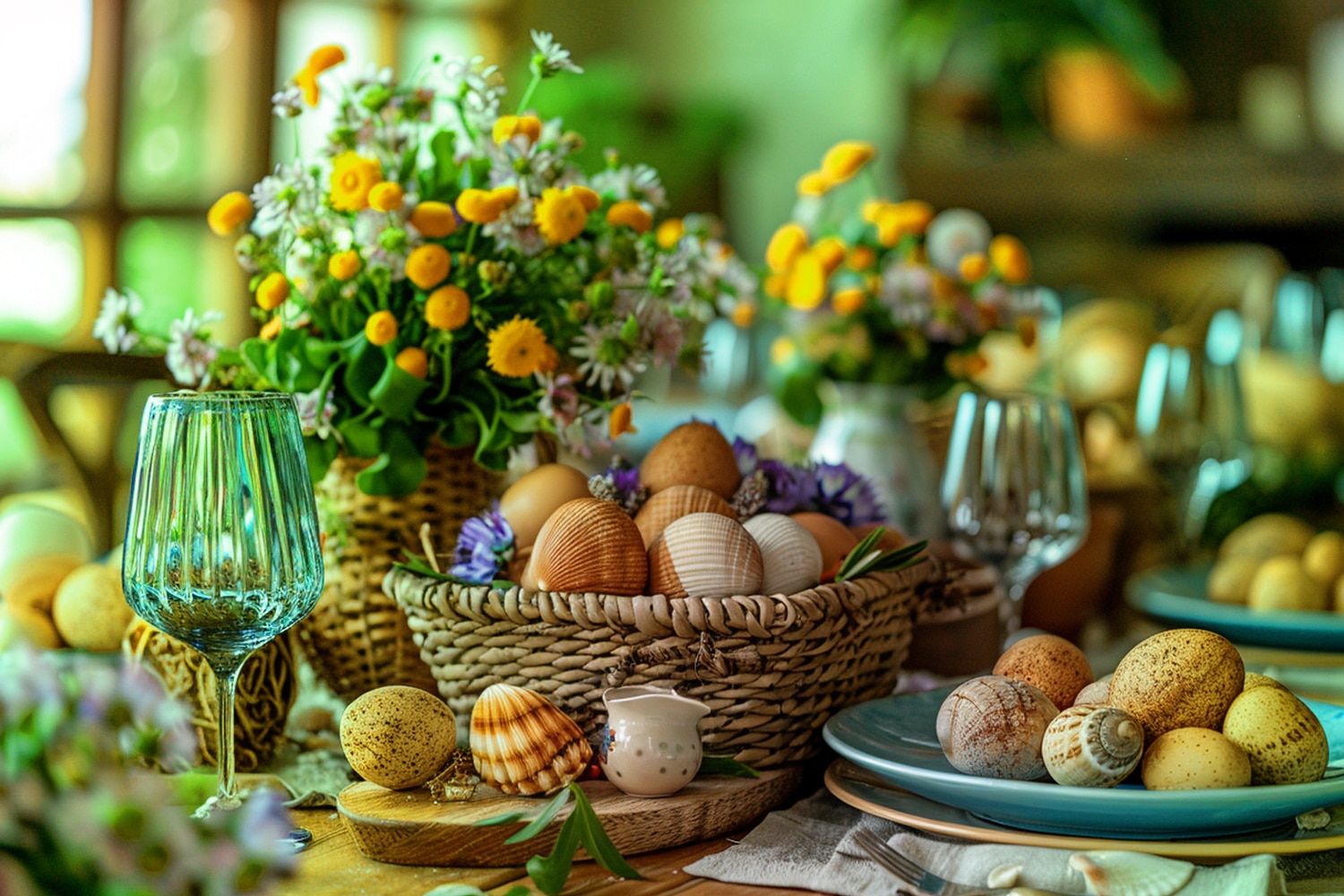Embracing Zero Waste – A Circular Approach to Easter Celebrations

It’s International Zero Waste Day tomorrow, but why’s that important, read on amigos!
Happy Easter friends.
Almost as soon as we’d finished our Christmas Puddings the aisles in our supermarkets and shops were being filled with vibrant displays of Easter eggs, Hot Cross Buns, chocolates, and decorations, all wrapped in layers of plastic and packaging. However, amidst the joyous celebrations, it’s crucial that we pause and reflect on the environmental impact of our festivities. This Easter, let’s embark on a journey towards zero waste, embracing the principles of the circular economy to make our celebrations both eco-friendly and sustainable.
The concept of zero waste revolves around minimizing waste generation and maximising resource efficiency. It’s about rethinking our consumption patterns, from production to disposal, with the aim of creating a closed-loop system where materials are reused, recycled, or composted rather than ending up in landfills or incinerators. Similarly, the circular economy emphasises the importance of keeping resources in use for as long as possible, extracting the maximum value from them and then recovering and regenerating products and materials at the end of their service life.
I’ll always shoehorn what we do at Syntech into the blogs, not because I’m the marketing manager, far from it, I’m the sustainability lead, the carbon reduction dude, orangutan saviour, but I’m also a pragmatic environmentalist who looks at the practical solutions to enable the transition to cleaner renewable energy and transport systems.
What we do here is completely within the circular economy ethos. Our holistic approach to our biofuel production means that we recycle waste into low carbon Biofuels and renewable energy creating almost zero waste in the process.
But how can we apply these principles to Easter celebrations?
When it comes to Easter eggs, think beyond the traditional chocolate treats wrapped in plastic and foil. Look for Easter eggs packaged in recyclable or compostable materials. Better yet, consider making your own chocolate treats at home using bulk ingredients to minimise packaging waste. It’s important we get our chocolate fix at Easter, a big old Chocolate Easter cake or cupcakes with mini eggs on can work.
Incorporating eco-friendly practices into Easter egg hunts can also make a significant difference. Instead of using disposable plastic eggs, opt for reusable alternatives or organise a “nature hunt” where children search for painted rocks, seashells, or treats. Not only will this reduce plastic waste, but it will also encourage kids to connect with nature and appreciate its beauty.
Food plays a central role in Easter celebrations, and it’s an excellent opportunity to embrace sustainable eating habits. I know there is a cost of living crisis on at the moment but if you can afford to, choose locally sourced, seasonal ingredients for your Easter feast to support local farmers and reduce the carbon footprint associated with transportation. Some supermarkets are awash with good cheap British veg, we really shouldn’t be eating mange tout from Mexico. British lamb is beautiful, and thousands of miles closer than New Zealand. Try and minimize food waste by planning your meals carefully and repurposing leftovers into delicious meals or snacks. Composting organic waste such as fruit and vegetable scraps can also divert them from landfills and enrich the soil in your garden.
Furthermore, consider hosting a zero waste Easter dinner using reusable tableware, cloth napkins, and avoiding disposable plastics altogether. Single use materials end up in landfill somewhere. Encourage guests to bring their own containers for leftovers, reducing the need for single-use packaging.
Finally, don’t forget to spread awareness about the importance of zero waste and the circular economy among family and friends. Share your experiences, tips, and creative ideas for reducing waste during Easter and beyond. Everyone can inspire others to adopt sustainable practices, we can collectively work towards a greener, more resilient future.
Easter is a time of joy, renewal, and celebration, and by embracing zero waste principles and the circular economy, we can make our festivities more sustainable and environmentally friendly. From decorations to Easter eggs and food, there are countless ways to minimize waste and maximize enjoyment. Let’s seize this opportunity to create lasting memories while caring for the planet we depend on.
And this week’s tune, my all-time favourite Easter song, give it a listen.
https://www.youtube.com/watch?v=jHPOzQzk9Qo
Thanks for reading, have a beautiful Easter.
Mike.
Sign up to the Syntech Biofuel newsletter
Stay informed about us, our biofuel and more, just subscribe
and we’ll keep you posted.